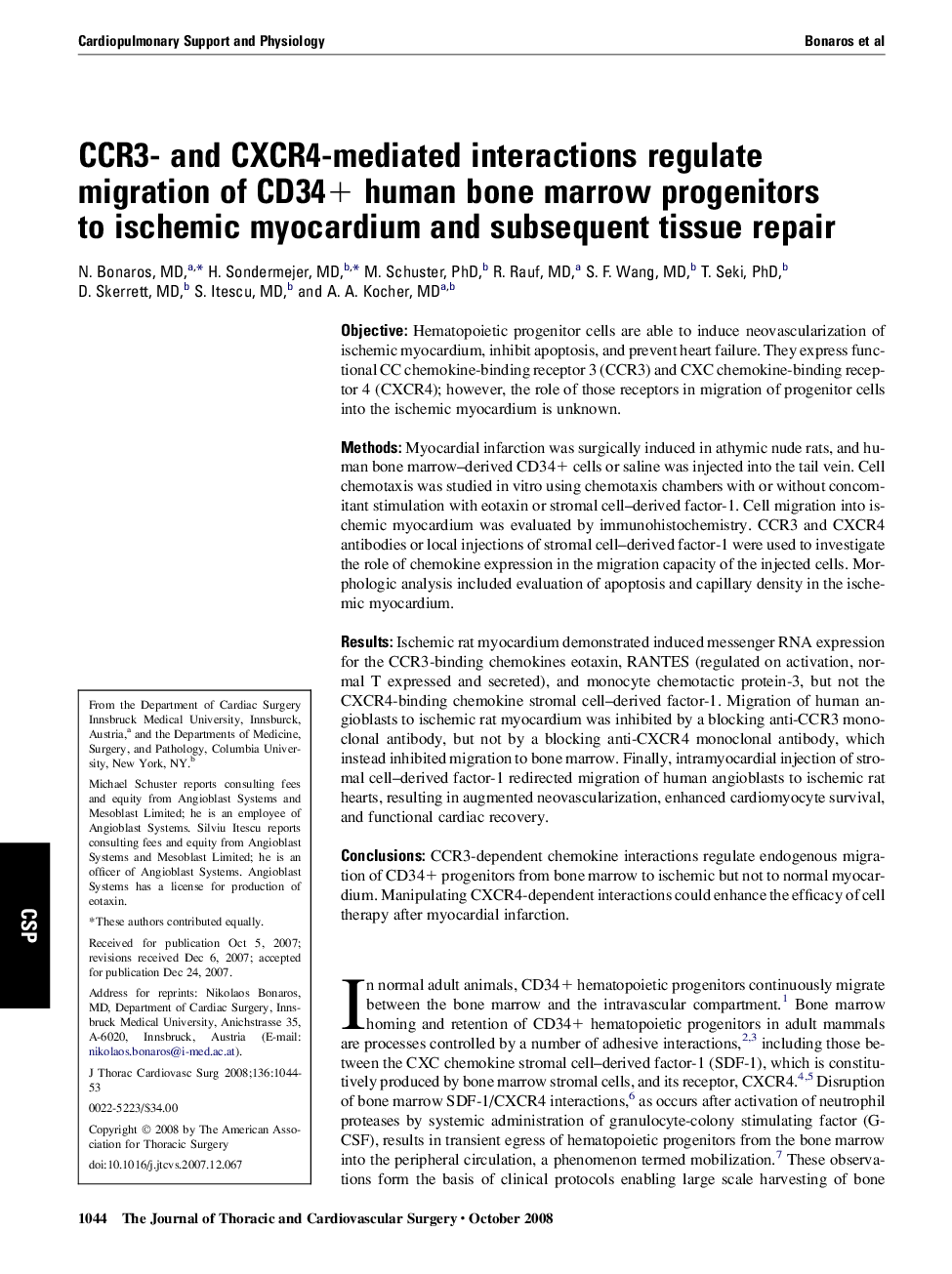| کد مقاله | کد نشریه | سال انتشار | مقاله انگلیسی | نسخه تمام متن |
|---|---|---|---|---|
| 2982811 | 1578681 | 2008 | 10 صفحه PDF | دانلود رایگان |

ObjectiveHematopoietic progenitor cells are able to induce neovascularization of ischemic myocardium, inhibit apoptosis, and prevent heart failure. They express functional CC chemokine-binding receptor 3 (CCR3) and CXC chemokine-binding receptor 4 (CXCR4); however, the role of those receptors in migration of progenitor cells into the ischemic myocardium is unknown.MethodsMyocardial infarction was surgically induced in athymic nude rats, and human bone marrow–derived CD34+ cells or saline was injected into the tail vein. Cell chemotaxis was studied in vitro using chemotaxis chambers with or without concomitant stimulation with eotaxin or stromal cell–derived factor-1. Cell migration into ischemic myocardium was evaluated by immunohistochemistry. CCR3 and CXCR4 antibodies or local injections of stromal cell–derived factor-1 were used to investigate the role of chemokine expression in the migration capacity of the injected cells. Morphologic analysis included evaluation of apoptosis and capillary density in the ischemic myocardium.ResultsIschemic rat myocardium demonstrated induced messenger RNA expression for the CCR3-binding chemokines eotaxin, RANTES (regulated on activation, normal T expressed and secreted), and monocyte chemotactic protein-3, but not the CXCR4-binding chemokine stromal cell–derived factor-1. Migration of human angioblasts to ischemic rat myocardium was inhibited by a blocking anti-CCR3 monoclonal antibody, but not by a blocking anti-CXCR4 monoclonal antibody, which instead inhibited migration to bone marrow. Finally, intramyocardial injection of stromal cell–derived factor-1 redirected migration of human angioblasts to ischemic rat hearts, resulting in augmented neovascularization, enhanced cardiomyocyte survival, and functional cardiac recovery.ConclusionsCCR3-dependent chemokine interactions regulate endogenous migration of CD34+ progenitors from bone marrow to ischemic but not to normal myocardium. Manipulating CXCR4-dependent interactions could enhance the efficacy of cell therapy after myocardial infarction.
Journal: The Journal of Thoracic and Cardiovascular Surgery - Volume 136, Issue 4, October 2008, Pages 1044–1053